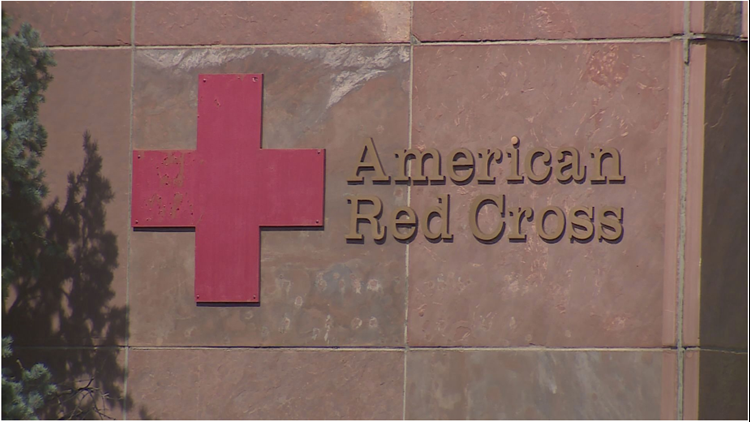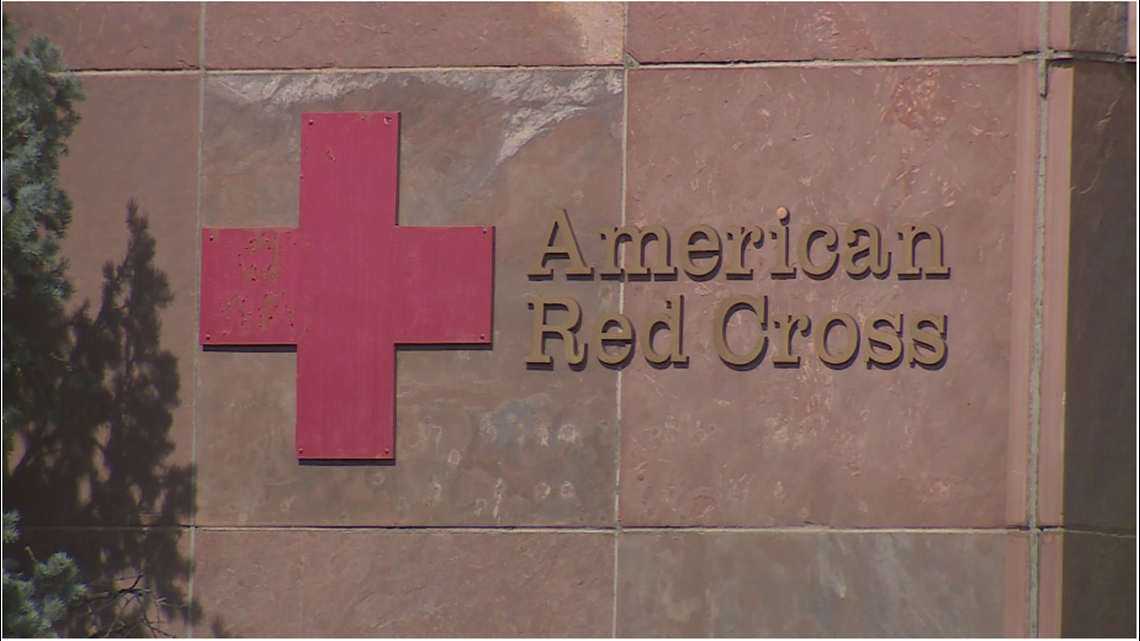
With loosened COVID-19 restrictions, teams helping provide shelter will once again be able to use congregate shelters.
LITTLETON, Colo. — As several wildfires continue to burn in parts of Colorado, the American Red Cross of the Colorado & Wyoming region are at the ready to help those that may be impacted or displaced if they’re needed.
“We’re prepared,” said Diana Dalager, a mass care lead for the Colorado, Wyoming region for the Red Cross. “We are still because of the last year, we are prepared to go and we are on standby.”
Wildfires are nothing new for the Red Cross teams that help out with providing shelter for those who are forced to leave their homes, as they dealt with helping those during the Cameron Peak Fire last year.
COVID-19 safety restrictions were a challenge and impacted the way those teams respond.
“…and so we like the contact with our clients and during COVID, with non- congregate shelters, it was really difficult because of COVID they would just go to their rooms and pretty much stay there,” Dalager said.
But, as restrictions loosen, so do those for the shelters, something Dalager said her teams are excited for, because it could help with the logistics side of things for providing shelter.
How COVID-19 impacted operations
To keep their clients safe, Dalager explained that when responding with their Shelter Strike Team to help provide shelter during natural disasters and other events, many COVID-19 restrictions were in place.
One challenge was not being able to use congregate shelters, like a large room to fit several beds inside. Dalager explained that each chapter of the Red Cross were responsible for making sure those facilities were up to date and accessible for anyone with disabilities.
Instead, to keep people socially distanced, they had to use non-congregate shelters, so places like a hotel, in order to keep people distanced.
“It’s pretty much calling a hotel, seeing their availability, and if they are willing to work with us,” she said.
The process essentially added steps to the team’s already quick response, and that also went for food.
“…normally we’ll kind of have like cambros that the emergency response vehicles bring and they’ll just serve food right there on the spot. Because of COVID, everything had to already be served. And so it made it difficult,” she said. “Again, you know, it was either taking the food to the rooms and then just leaving that there. Again, no contact with the clients. Or calling a room one by one to come downstairs to the hotel lobby and pick up their food.”
But overall, one of the biggest challenges was being unable to comfort those through actual contact.
“It was hard. You know, the one of the things with all the shelter volunteers is that, you know, you are working with people that have lost homes or have even lost loved ones and they’re in tears. And you just want to hug them, you know, and they appreciate that,” she said. “And during COVID, you would see somebody crying because they just lost their home during the Cameron Peak Fire. And you can’t go up to them and you can’t hug them.”
But, as the light at the end of the tunnel for the pandemic grows, so does the end of many of the restrictions for shelter teams.
A new phase
As the current wildfires burn, Dalager explained that teams are on standby in case they’re needed to help in any way.
But this time, she explains that they’ll be able to use congregate shelters if needed, but still space out the beds.
“…most of us have received the vaccinations and we’re ready to go,” she said. “…we still are working under COVID guidelines. So, you know, it could be instead of setting a cot six feet apart, it’ll be 10 feet apart and it’ll be head to toe, each cot.”
Among other things, when it comes to food, she added that they’ll still continue to take pre-cautions.
“…we’re still wearing masks and hopefully there won’t be another outbreak, right? Fingers crossed. But, we’re prepared and we’re handling all this with safety,” she said. “We are all prepared to respond at any time. We have trained, we have planned. We have made sure that our trailers are stocked and we are all we’re ready to go.”
To learn how to volunteer for the Red Cross in Colorado, click here.
SUGGESTED VIDEOS: Wildfires in Colorado













































